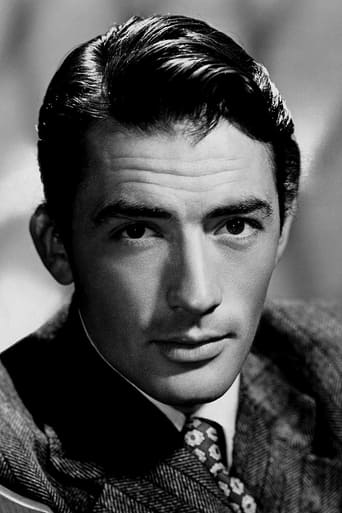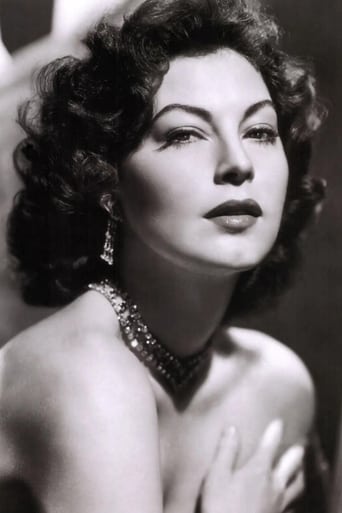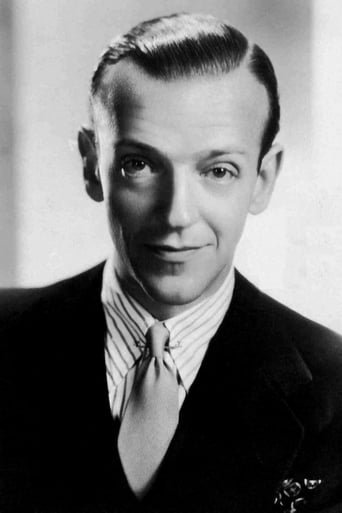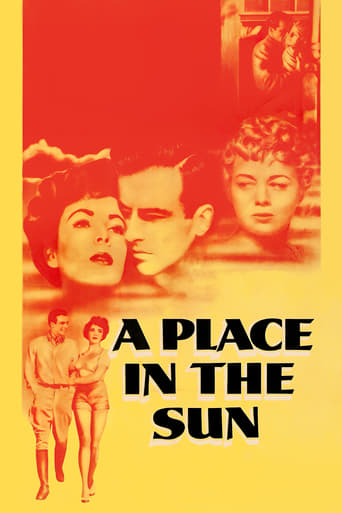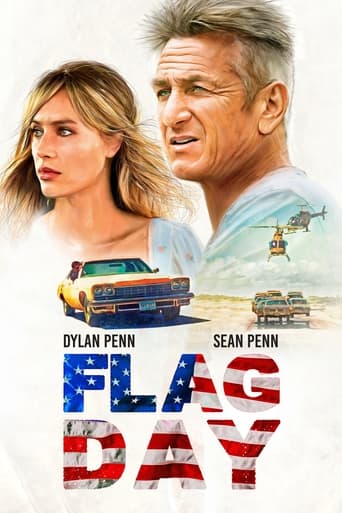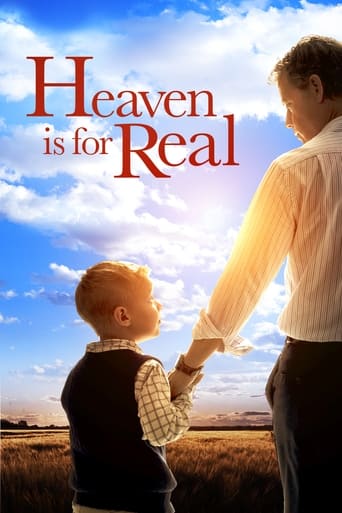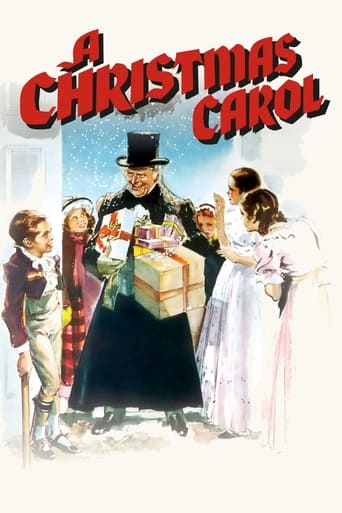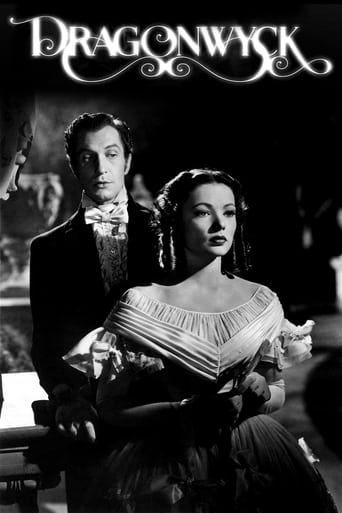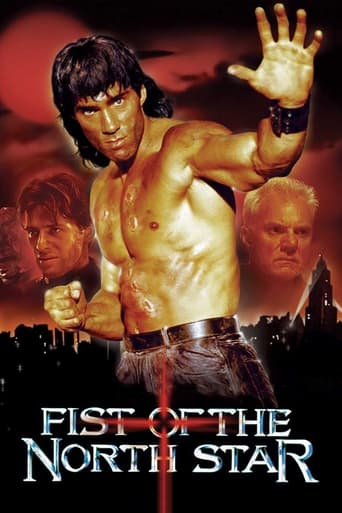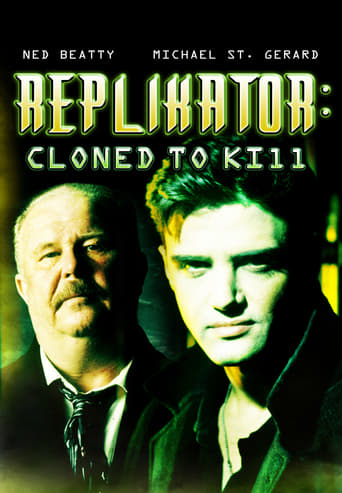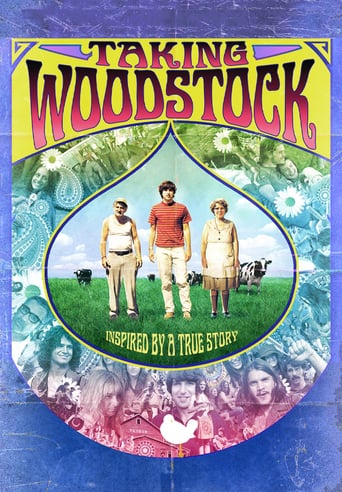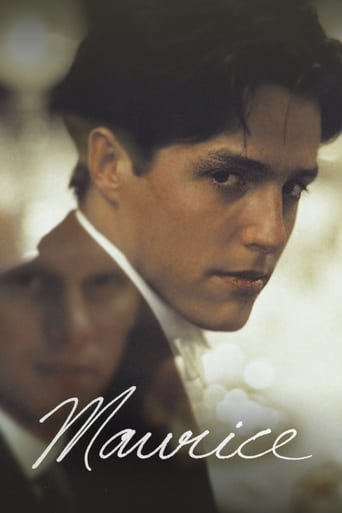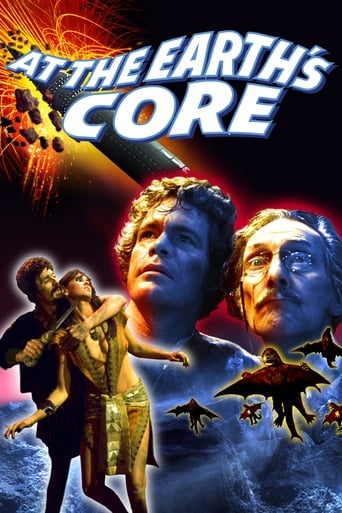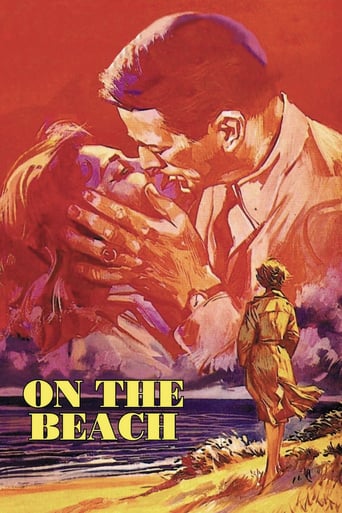
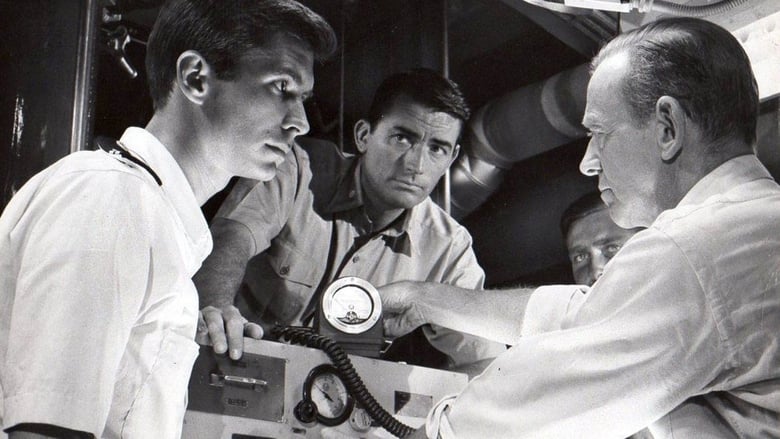
On the Beach (1959)
In 1964, atomic war wipes out humanity in the northern hemisphere; one American submarine finds temporary safe haven in Australia, where life-as-usual covers growing despair. In denial about the loss of his wife and children in the holocaust, American Captain Towers meets careworn but gorgeous Moira Davidson, who begins to fall for him. The sub returns after reconnaissance a month (or less) before the end; will Towers and Moira find comfort with each other?
Watch Trailer
Cast


Similar titles
Reviews
Why so much hype?
Terrible acting, screenplay and direction.
Highly Overrated But Still Good
This is one of the best movies I’ve seen in a very long time. You have to go and see this on the big screen.
ON THE BEACH is a post-apocalyptic science fiction drama about total annihilation" of the human race. Film was based on the 1957 novel of the same name by Nevil Shute.After the World War III, one of the world's superpowers has activated, by mistake, a nuclear weapon. Life on the Northern Hemisphere was completely destroyed. Deadly radiation has, carried by air currents, polluted almost the entire Earth's atmosphere. Australia, as one of the last colonies of mankind, was exposed to a deadly danger. In that madness one submarine captain will not accept that his wife and children are dead. A young Australian naval lieutenant and his wife will review their relationship and marriage. An unhappy and lonely woman will try to find a true love. Time is running out...Life is the greatest miracle. However, it is easy to destroy. This film, in the absence of special effects and scenes of destruction, examines persistence, courage and emotions of a small group of people. People were resigned to their fate. They have, in the absence of hysteria, devoted all attention to love and family. The story is simple, sad and a quite unconvincing. Culprits, conflicts and possibly evil are not essential. This approach is not bad, but the holes in the story are more than obvious. The protagonists have faced depression and fears in different ways. They have accepted a fatal situation. However, emotional sparks constantly smolder.Typically, different characters were exposed to the same conditions.Gregory Peck as Commander Dwight Lionel Towers is a character who leads a quiet and touching monologue with himself. Ava Gardner as Moira Davidson is an unfortunate woman and an alcoholic who, with a smile and flirt, skilfully hides her loneliness. Fred Astaire as Julian Osborn is a scientist who, probably better than anyone, understands what is happening. His character is torn between remorse and ironic views on the rest of this life. Anthony Perkins (Lieutenant Commander Peter Holmes) and Donna Anderson (Mary Holmes) are a sort of a personification of a broken family, youth and love.Together and with love against fear of an inevitable fate.
The film does a good job developing the premise with a wide array of characters, each with their own intrigues pertaining to the plot - that of the end of the world. Through this apocalyptic narrative, each character reveals a different set of aspirations, preoccupying thoughts, and fears. The film does very well at sustaining an enjoyable framework for just about the whole 'first act', but the problem isn't nearly the take-off but rather the landing. It seems the film will end about 3, possibly 4 times, and all the tension it builds resolves, and yet it keeps going on, before deciding to end with an abrupt conclusion. It's too long for what it is, and the extra footage isn't necessary at all. It seems the whole tension/structural aspect has been over-managed, over-done. The apparent inherent logic seems to be one way, and then we're given an encore, and then another...and it only works against it. There's a lot of good in this film - good acting, entertaining content, somewhat interesting intrigues with their philosophical implications and romances...but it's just about half an hour too long.
On The Beach is directed by Stanley Kramer, has a screenplay by John Paxton, is based on the novel by Nevil Shute and stars Gregory Peck, Ava Gardner, Fred Astaire, Anthony Perkins and Donna Anderson.On The Beach is set in 1964 where following a Nuclear war the majority of the worlds population has been killed, apart from some people who were at sea at the time and the population of Australia. The deadly radiation is making it's way towards Australia and the citizens and any survivors from other countries who've made their way there must come to terms with their impending doom.The US submarine USS Sawfish commanded by Captain Dwight Towers(Gregory Peck)arrives in Australia where Towers and his crew await the end of the world. Towers befriends Australian Navy Lieutenant Peter Holmes(Anthony Perkins)who's young wife Mary(Donna Anderson)is struggling to accept that they and their new born daughter will soon lose their lives.Towers also meets Moira Davidson(Ava Gardner) a weary woman who uses alcohol as a way to cope with what humanity is facing. Towers and Moira fall in love and for a while bring some comfort to each other. Towers is a widower who's family were killed in the Nuclear war although he still holds onto a small hope that somehow they may have survived. Towers also meets Julian Osborne(Fred Astaire)a scientist who helped create the atom bomb and bitterly regrets that invention and the military who used these weapons.As they seek to come to terms with their situation a radio transmission is received from America which could indicate survivors there. Towers, Osborne and the Sawfish crew go to investigate.Bleak and chilling On The Beach makes us question the sense of having so many Nuclear and biological weapons when just having one is one too many. Both the film and the novel make you think how you would react to the world ending, would you pretend it wasn't going to happen? would you get sick or would you commit suicide to prevent a horrible death? The films characters all have to face these questions and Mary and Peter Holmes in particular struggle to decide when faced with suicide or agonising radiation sickness. It's an horrific choice none of us should ever have to face. Being released so close to the Cold War this film no doubt struck a powerful chord with audiences who thought they might well be facing the worlds end soon themselves.Chilling,thought provoking and deeply moving with brilliant performances On The Beach is an unforgettable experience. The films use of the tune Waltzing Matilda is haunting and it works really well with the film especially during the final few minutes.
Nuclear War and the End of the World. Now there is a Depressing Thought. But there is Absolutely No Reason to make a Depressing (read detaching) Movie. The Point Can be Made with Drama and Dread, Chilling and Disturbing Images, and Thoughtful Dialog about the Why's and the Whatevers. But this is Certainly one that is Shallow and Dull with only a Modicum of Resonance and Even Less Intellect.Philosophy about Nuclear War and Humanities Propensity to Destroy is Almost Absent and in its Place We have Philosophies about Marital Infidelity and Suicide by way of a Kevorkian Escape from Pain. A Totally Misplaced Engagement. We are Dealing with Global Annihilation and the End of Human Existence, not Someone Deciding to Pull the Plug because of Cancer.There is so much to Consider in this Cold War Scenario and it is All Reduced to Soap Opera. This is one of the Most Overrated Movies of All Time that Attempts to be Meaningful about its Subject (a noble effort) and be Oh So Important. But why make it so Interpersonal. Sure Everybody has Someone They Care About and Everyone is Special. But this is a Global Scenario, not some sort of Last Backyard Barbecue of the Fifties.



